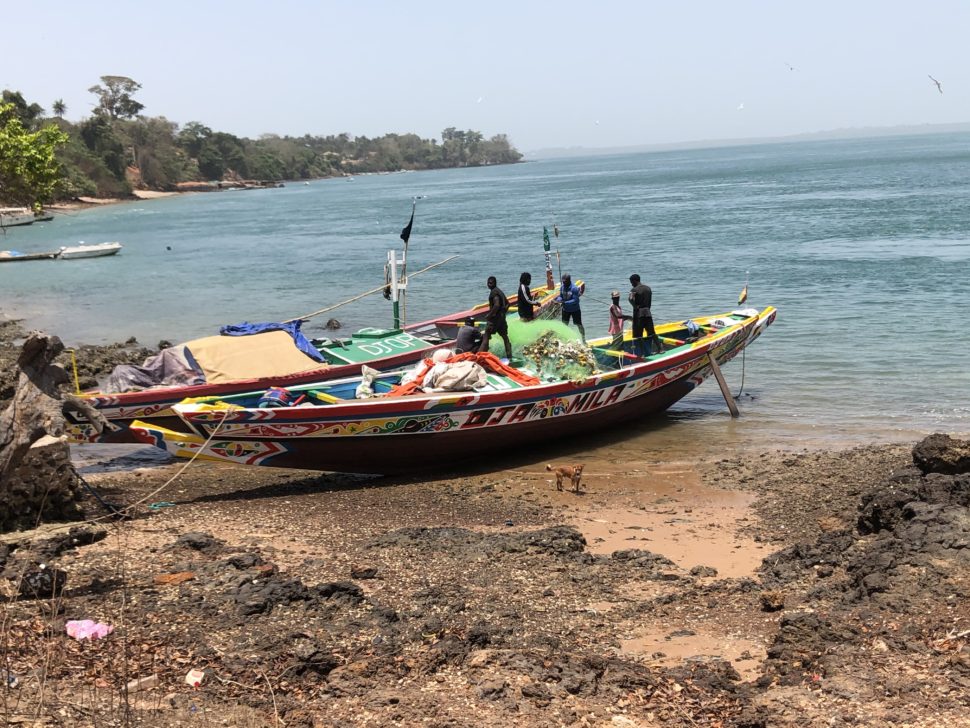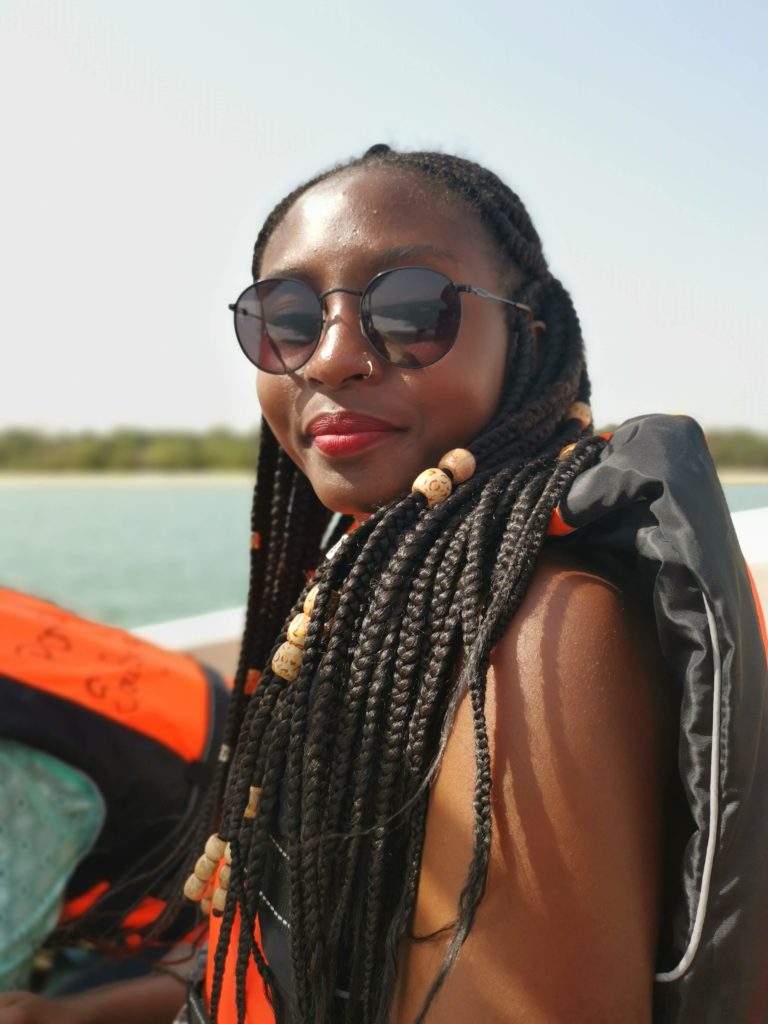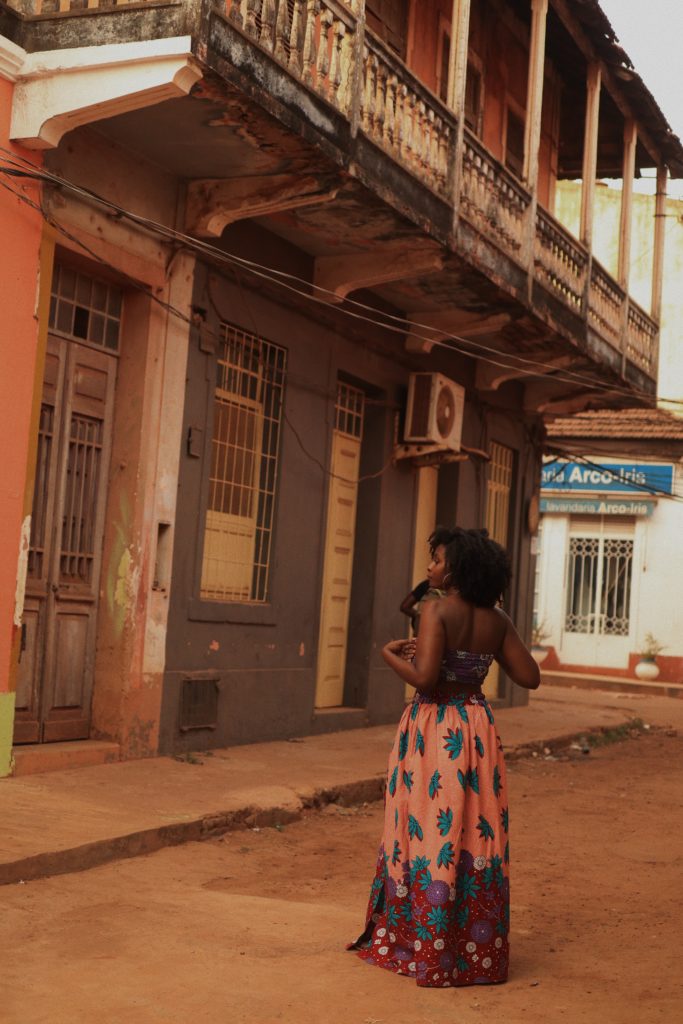When relocating to Guinea-Bissau, Yasmina Nuny Silva found that a combination of adjustment, domestic travel and the poetry of language led her to some of the country’s hidden gems.
We spoke to Yasmina to see how she is using her writing to explore, improve and shed light on life in Guinea-Bissau.
Travel Noire: Could you tell us who you are and what you do.
Yasmina: While poetry used to be my primary medium, I would say that I am now more of a journalist and a writer. When I’m not writing, I am a communications consultant at UNICEF. I’ve also relocated to my country, Guinea-Bissau.
TN: How would you describe your relationship with Guinea-Bissau?
Yasmina: I was born in Portugal and came to Guinea-Bissau as a baby. Shortly after my family and I arrived back in Guinea-Bissau, a civil war broke out, so we ended up living in several other countries like Senegal and Zimbabwe. Eventually we would come back to visit, but Guinea-Bissau had always been a holiday destination for us.
It was always a place that I came to because I had family here, but I never really wanted to stay beyond the holidays. Fast-forward a couple of decades, and it’s still a very difficult place to live in. I didn’t necessarily want to come back but to my surprise, it has since become my home.
Credit: Yasmina Nuny Silva
TN: What do you think is the global perception of Guinea-Bissau?
Yasmina: I’m very protective, even if a little critical of my country. I would say the general perception of Guinea-Bissau falls short. We have one of the richest biodiversities in the world and some impressive protected lands. We also have a very rich history with some prominent Pan-African thought leaders like Amílcar Cabral.
A lot of these things get lost because of lack of attention. I also think we get swept up and forgotten about being situated in the Francophone area, being the only Portuguese-speaking country in the region. We’re also a tiny country, and we don’t have a lot of globally known Guinean-Bissau people. I think all of this invisibility is quite dangerous for us, it stops people seeing and caring about the reality of the country. There is a lot of misconception/ignorance about Guinea-Bissau, for instance we’re mostly known for cashews and drug-trafficking, which is sad and misleading. The only other time people care is when they discover our hidden gems like the islands that people want to visit for a day and then that’s the only attention we get.
 Credit: Yasmina Nuny Silva
Credit: Yasmina Nuny Silva
TN: What would you say are the overlooked parts of the country outside of Bissau, the capital city?
Yasmina: We have the beautiful Cufada lagoons, in the region of Quinara which is in the south of the country. We have beautiful cascading waters in the east of the country. We have a bunch of forest reserves and of course there is the island, Bubaque, with the saltwater hippos— a true wonder. There is a reason why people visit. We also have turtles, secret islands – islands that you cannot visit because it’s sacred and only select people who have a certain level of privilege can access them. Then we have the old capital city, Bolama, which is one of the islands. There is so much to see, and I haven’t even seen all of it.

TN: How have you personally managed with integrating into a new environment?
Yasmina: I went back with a lot of optimism. I thought “Yes, my whole family’s returning after 20 years, we’re going to make a positive impact, and we’re going to be at home and things are going to be different” and then we had the elections. Politically speaking, it was scary. Seeing how militarized people were was definitely a first for me, an adjustment. I also got laughed at while making myself at home here. I spent most of my time at home – I expected to come back and be on my best content creation, but I just wasn’t. Honestly, it was initially traumatic and lonely. At first, I didn’t make friends easily because I found that I couldn’t relate to people, having been away from the country for so long. It took me a while to accept that circumstance took me elsewhere but that didn’t mean I was disconnected from Guinea-Bissau, I just needed time to adjust.
TN: Being a writer, did you use creativity to help aid your adjustment period?
Yasmina: I actually became a journalist here and fell away from my poetry. I started pitching to platforms and writing about what was happening. The opportunity to travel the country did get me back into personal writing. The trip that really inspired me was traveling to the Cantanhez National Forest. I wanted to write again because of the stories of the women I met. It pushed my imagination into what the world could be. I wrote to explore what the world could be for Guineans that is beyond this reality.
 Credit: Mila Silva
Credit: Mila Silva
TN: Have you noticed any major changes in your opinion about Guinea-Bissau since living and travelling the country?
Yasmina: It is so easy to get caught up in the negatives, the politics etc., but it’s actually been healing for me to get out of the capital city. Seeing how hardworking people are in other regions, being surrounded by natural phenomena, seeing that the air is actually so clean all helps. I’m relearning that there’s a lot of untapped potential in the country.
Find out more about Yasmina’s travels and writing on Instagram.
Source link : https://travelnoire.com/returning-to-guinea-bissau-econnect-through-unsung-tourism
Author :
Publish date : 2021-12-29 08:00:00
Copyright for syndicated content belongs to the linked Source.





